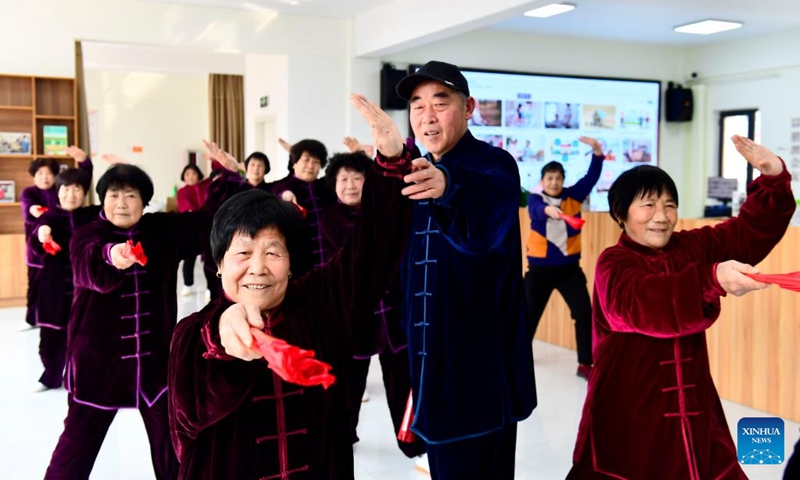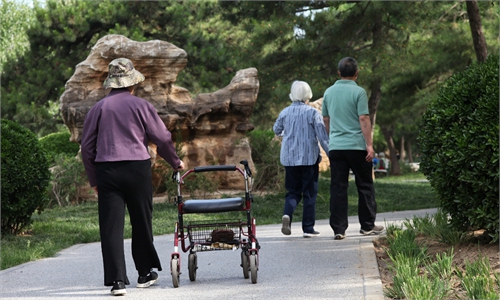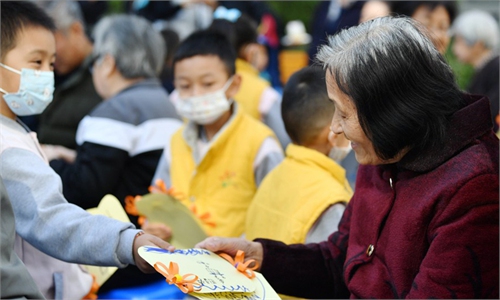Chinese life expectancy increased to 78.2 years over past decade thanks to childbearing, population policies

Elderly people practice Taiji at a community care center for the elderly in Lanshan District, Rizhao, east China's Shandong Province, Feb. 27, 2022. Lanshan District of Rizhao City has set up care centers since 2021, providing assistance and care to the elderly people over 60 years old.(Photo: Xinhua)
Chinese people's life expectancy made a historic leap over the past decade with the average lifespan increasing to 78.2 years from 74.8 years and key health indications ranking among the top of middle- and high-income countries, reflecting sufficient protection for people's right to health, China's top health authority announced on Wednesday.
These achievements were attributed to major decisions such as the gradual adjustment of childbearing policies and the promotion of the long-term balanced development of the population according to the trend of China's population change, the National Health Commission (NHC) said during Wednesday's press conference.
The long-term and balanced population development and the health levels of the elderly and children have been improved over the past decade, said Li Bin, deputy director of the NHC, at the conference.
Meanwhile, China's population development also faces profound and complex changes, the NHC noted, such as the growth of the total population having slowed down significantly, the general birth rate being lowered to 1.3 or below, and a deepened aging problem.
Therefore, the health authority has further promoted the practice of combining medication and nursing home services and actively promoting the building of an elderly-friendly society, in a bid to actively address the aging of the population.
In addition, the commission has been constantly optimizing childbearing policies by successively implementing the two-child and now the third-child policies, revoking a series of restrictions such as social maintenance fees and rolling out a series of supportive policies, Li said.
New achievements have been constantly made in every perspective, with the proportion of second children or multiple children having increased from about 35 percent before the policy adjustment to above 55 percent in recent years, Du Xixue, commissioner of the department of population surveillance and family development at the NHC, said at the press conference, noting that the sex ratio of newborns has been gradually turning to a normal level and the levels of childbirth and upbringing have been improving.
In addition, support for infants and mothers has been raised significantly, with China's infant mortality rate and mortality of children aged 5 or below being kept far below the average levels of middle- and high-income countries, the health authority said.
Moreover, the security of infants and mothers has also been assured with childcare services initiated smoothly and policies, regulations and standards basically established. The support measures have been improved to effectively reduce the burdens of childbirth and childbearing for families.
The extended expected lifespan of Chinese people reflects that the Chinese people's health level and China's medical level have improved significantly in the past decade, He Yafu, an independent demographer, told the Global Times on Wednesday. He noted that while the extended lifespan reflects advances in society, it also brings further deepened problems of an aging population.
In the Chinese mainland, 13 provinces, municipalities and regions have now recorded more than 20 percent of their population being aged 60 or above, with three places seeing the share of this age period rise above one fifth for the first time, including Beijing, as the country's aging process continues speeding up.


